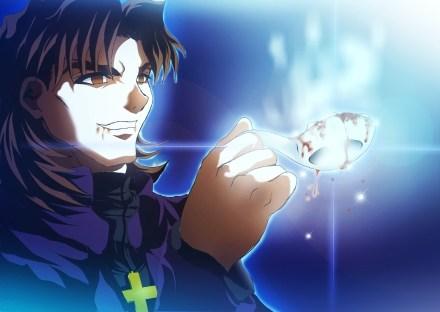06.08
As today’s market of dystopic fantasies and misunderstood loners can tell you, gritty storytelling sells. Darkness has been selling since before Nietzsche could count to ten. You’d be struggling to find a story without a bad case of dead moms, totalitarian government, murder, or something about rape in modern drama. But instead of adding realism, too many attempts at proving a tale to be mature only elicit disbelief and scorn towards the work. Make something too dark, and the whole thing becomes more garish than an LSD-laced gay pride parade.
Take Guilty Crown, for example. The show had it all: Evil government, childhood friends becoming cold-blooded terrorists, civilian deaths up the wazoo, and inexplicable nods to incest. The writers were telling a grim story about how war can corrupt the most innocent of men. As a result, the series bombed. Hard. What Guilty Crown completely forgot was one simple thing: Illustrating a reason to give a damn about all the brutality. Any characters with unambiguously good intentions get killed off or forgotten while prissy little Shu Ouma and his milquetoast motives take the center stage. The creators were clearly going for a Shinji Ikari or a Kamille Bidan type of character, only to forget that those two actually had reasons and motives beyond looking cool while debris flows through the air. When Shu goes into dark moments or experiences personal angst, the reaction is akin to watching a ragdoll getting spit on. No matter how turmoil he goes through, I’m still only seeing a blank shell get trampled on. Only so much J-pop can hide the truth that Shu is a soldier without a cause. His character doesn’t define his role, but the complete opposite. And what’s his role beyond “Uh, he’s Lelouch but more of a doormat?” or whatever subject that probably went over Production IG’s heads?
In the attempt to stray from the “healing-type” writing that I know most of you readers dread, we’ve gone to a different problem with too much conflict getting in the way of actually caring about what’s going on. That’s a criticism repeated again and again for recent shows—even ones that are generally considered good—like Fate/Zero or Aku No Hana. After all, there’s a reason why a sizable amount of fans prefer the coming-of-age tale of Waver Velvet to Kiritsugu’s thorough vivisection by endless bouts of horrific circumstances. A character arc more often than not repels viewers when the character in question is doomed to fail. People want a semblance of hope that the person they’re rooting for might actually get out with kind of payoff. While the show still rates highly in my book, that element fruitfully explains why certain forms of conflict might turn off an audience. You’ll hear complaints about why every character in Game of Thrones is either an asshole or a punching bag, and how many horror movies make you want to see the entire cast die. Before I digress any further, what is the most crucial element of drama lies in how despite all that stands in the way, there should be at least one drop of hope.
